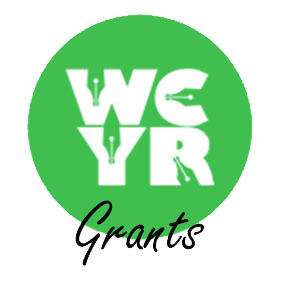Your cart is currently empty!

Regret Prevention: Using a Professional Editor

What could you do with a WCYR grant? How about hire a professional editor?
I’ve been working on a book for a long time. Very. Long. I spent three years thinking about it and making several unsuccessful attempts, and the next two years working on it between working at my other jobs. Getting a manuscript to the finish line can feel like a marathon. And the part of me that feels like it’s a miracle I got this far was not excited about marathon number two, which is the editing process.
Hiring a professional editor is worth every penny. For one thing, you don’t have to live with them, and they won’t be biased by their relationship with you. Editors are practiced at giving feedback that is constructive and truthful. It’s hard to hear that chapters you love need to be cut, or that the introduction you slaved over is three times too long. But your editor has a more global and less personal perspective than you do. They can save you from…you.
Even though I sometimes edit for others, I believe editing is like hairdressing. You can’t see your own work objectively and there are layers you can’t reach by yourself. Even the best hairdressers get someone else to cut their hair.
How do you find a good editor?
First get clear on your intentions. What genre are you writing and who is your ideal reader? Look for an editor who likes the genre and has experience working in it. Have a look through the acknowledgment pages of books you love. In our virtual world, you can easily work with someone at a distance. Referrals are an excellent way to find people. If you know other authors in your genre, ask them who they use. Editors Canada provides multiple resources, including a directory and job board, courses about editing, advice about hiring, and professional training for aspiring editors.
I found my editor by attending Writers Community of York Region and Writers Community of Durham Region events. I attended two of her workshops and decided that if I ever finished my book, she’d be the perfect fit for it. Although I have several friends who also edit, I deliberately chose someone who didn’t know me well, and who wasn’t familiar with the subject matter, because I wanted my book to be able to stand on its own. I wanted someone who was not well-versed in the subjects I covered, so that if I hadn’t explained things well enough, I would be called on it.
Getting clear about what you want from your editor is very important. Editors can provide many types of intervention. Substantive editing, for example, involves tackling issues of structure, argument (non-fiction), plot (fiction), and other “big-picture” problems. At the other end of the spectrum, copy-editing addresses issues of accuracy such as errors in spelling, word-choice and grammar. Depending on what you are writing, you may also want to hire a fact-checker, a proof-reader, or an editor with expertise in your subject. Obviously, budget will come into play, but I believe that the best way to ensure a book sells is to make sure that it’s high quality. When you’ve put years of time and effort into a manuscript, it’s worth investing some money to polish it. Some editors will do a paid sample chapter so that you can test out your compatibility without taking a large financial risk. They may also want to see a writing sample and synopsis before they give you a price and agree to take on your manuscript.
Beyond hiring the right person, a big part of the editing adventure is the commitment to do the work and make the recommended changes. It’s a lot of effort, and I’ve found that having to re-think and re-write isn’t nearly as much fun as drafting a new piece. But I’m also the kind of person who notices flaws and errors. Misspelled headlines in the newspaper make me crazy, so for me, it’s worth it to do the work now to save embarrassment later. I want to look back at this project in ten years’ time and say that I have no regrets.